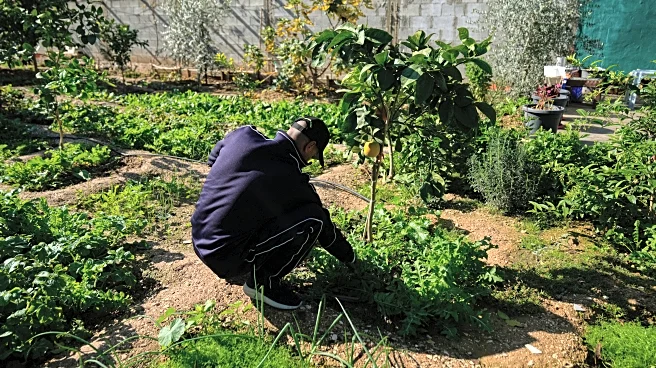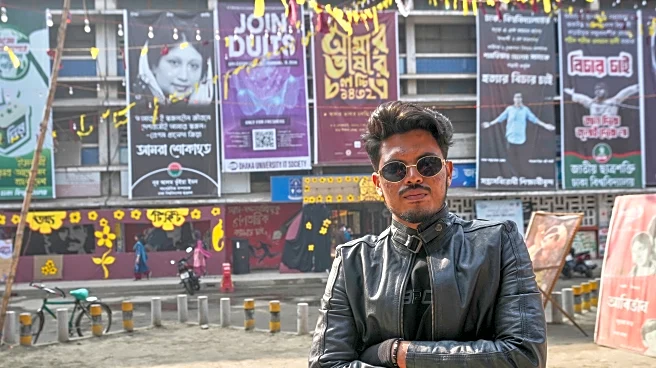What's Happening?
The Prime Minister’s Office of Israel announced that the bodies of two Israeli hostages were transferred from Gaza to Israel through the Red Cross. This transfer is part of an ongoing ceasefire agreement between Israel and Hamas. The bodies were received
by IDF and Shin Bet operatives in a formal military ceremony in Gaza, facilitated by the Red Cross. The remains were then transported to the National Center of Forensic Medicine in Tel Aviv for identification. The families of the deceased will be notified once the identification process is complete. This development follows the return of 20 living hostages and 10 bodies under the ceasefire agreement, with 18 more bodies still held in Gaza. Israeli officials were reportedly surprised by the announcement, as there was no prior indication of the return of additional remains.
Why It's Important?
The transfer of the hostages' bodies is a significant step in the ongoing negotiations between Israel and Hamas, highlighting the fragile nature of the ceasefire agreement. This development impacts the families of the hostages, providing some closure and the possibility of proper burials. It also underscores the complex dynamics of the Israel-Hamas relationship, where humanitarian gestures are intertwined with political negotiations. The return of the bodies may influence public opinion in Israel and could affect the Israeli government's approach to future negotiations with Hamas. The situation remains delicate, with the potential to either stabilize or further complicate the ceasefire agreement depending on subsequent actions by both parties.
What's Next?
The Israeli government will continue to monitor Hamas's compliance with the ceasefire agreement, particularly regarding the return of the remaining hostages' bodies. Prime Minister Benjamin Netanyahu has ordered the Rafah crossing between Gaza and Egypt to remain closed until further notice, contingent on Hamas fulfilling its commitments. The situation is likely to evolve as both sides navigate the terms of the agreement, with potential implications for future peace talks and regional stability. The international community may also play a role in facilitating or mediating further negotiations.


















